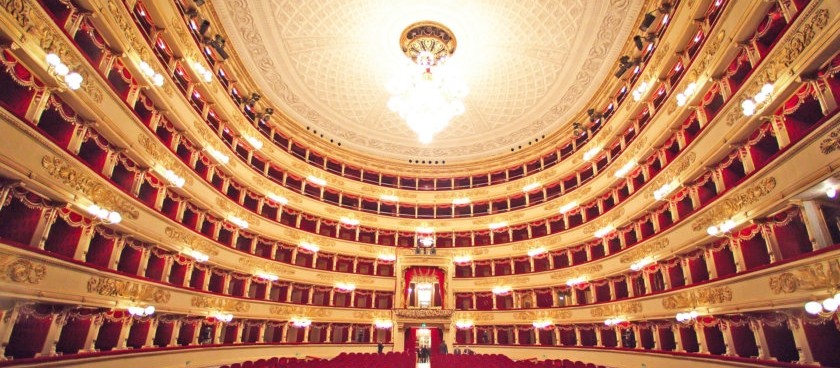
- #IT33
- Via Filodrammatici, 2, 20121 Milano MI, Italy
- 45.4676278, 9.1895405 Copy to clipboard Copy
-
#Art&Music
Most of Italy's greatest operatic artists, and many of the finest singers from around the world, have appeared at La Scala. The theatre is regarded as one of the leading opera and ballet theatres in the world and is home to the La Scala Theatre Chorus, La Scala Theatre Ballet, La Scala Theatre Orchestra, and the Filarmonica della Scala orchestra. The theatre also has an associate school, known as the La Scala Theatre Academy (Italian: Accademia Teatro alla Scala), which offers professional training in music, dance, stage craft and stage management.
La Scala's season opens on 7 December, Saint Ambrose's Day, the feast day of Milan's patron saint. All performances must end before midnight, and long operas start earlier in the evening when necessary.
The Museo Teatrale alla Scala (La Scala Theatre Museum), accessible from the theatre's foyer and a part of the house, contains a collection of paintings, drafts, statues, costumes, and other documents regarding La Scala's and opera history in general. La Scala also hosts the Accademia d'Arti e Mestieri dello Spettacolo (Academy for the Performing Arts). Its goal is to train a new generation of young musicians, technical staff, and dancers (at the Scuola di Ballo del Teatro alla Scala, one of the Academy's divisions).
Above the boxes, La Scala has a gallery—called the loggione—where the less wealthy can watch the performances. The gallery is typically crowded with the most critical opera aficionados, known as the loggionisti, who can be ecstatic or merciless towards singers' perceived successes or failures. For their failures, artists receive a "baptism of fire" from these aficionados, and fiascos are long remembered. For example, in 2006, tenor Roberto Alagna left the stage after being booed during a performance of Aida, forcing his understudy, Antonello Palombi, to quickly replace him mid-scene without time to change into a costume. Alagna did not return to the production.